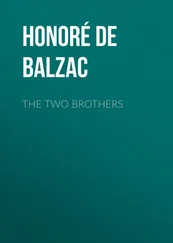Honoré Balzac - The Alkahest
Здесь есть возможность читать онлайн «Honoré Balzac - The Alkahest» — ознакомительный отрывок электронной книги совершенно бесплатно, а после прочтения отрывка купить полную версию. В некоторых случаях можно слушать аудио, скачать через торрент в формате fb2 и присутствует краткое содержание. Жанр: literature_19, foreign_antique, foreign_prose, на английском языке. Описание произведения, (предисловие) а так же отзывы посетителей доступны на портале библиотеки ЛибКат.
- Название:The Alkahest
- Автор:
- Жанр:
- Год:неизвестен
- ISBN:нет данных
- Рейтинг книги:4 / 5. Голосов: 1
-
Избранное:Добавить в избранное
- Отзывы:
-
Ваша оценка:
- 80
- 1
- 2
- 3
- 4
- 5
The Alkahest: краткое содержание, описание и аннотация
Предлагаем к чтению аннотацию, описание, краткое содержание или предисловие (зависит от того, что написал сам автор книги «The Alkahest»). Если вы не нашли необходимую информацию о книге — напишите в комментариях, мы постараемся отыскать её.
The Alkahest — читать онлайн ознакомительный отрывок
Ниже представлен текст книги, разбитый по страницам. Система сохранения места последней прочитанной страницы, позволяет с удобством читать онлайн бесплатно книгу «The Alkahest», без необходимости каждый раз заново искать на чём Вы остановились. Поставьте закладку, и сможете в любой момент перейти на страницу, на которой закончили чтение.
Интервал:
Закладка:
The spirit of devotion which, it may be, is the crown of love in a woman, was not lacking in this young girl, who had always despaired of being loved; at first, the prospect of a struggle in which feeling and sentiment would triumph over actual beauty tempted her; then, she fancied a grandeur in giving herself to a man in whose love she did not believe; finally, she was forced to admit that happiness, however short its duration might be, was too precious to resign.
Such hesitations, such struggles, giving the charm and the unexpectedness of passion to this noble creature, inspired Balthazar with a love that was well-nigh chivalric.
CHAPTER III
The marriage took place at the beginning of the year 1795. Husband and wife came to Douai that the first days of their union might be spent in the patriarchal house of the Claes, – the treasures of which were increased by those of Mademoiselle de Temninck, who brought with her several fine pictures of Murillo and Velasquez, the diamonds of her mother, and the magnificent wedding-gifts, made to her by her brother, the Duke of Casa-Real.
Few women were ever happier than Madame Claes. Her happiness lasted for fifteen years without a cloud, diffusing itself like a vivid light into every nook and detail of her life. Most men have inequalities of character which produce discord, and deprive their households of the harmony which is the ideal of a home; the majority are blemished with some littleness or meanness, and meanness of any kind begets bickering. One man is honorable and diligent, but hard and crabbed; another kindly, but obstinate; this one loves his wife, yet his will is arbitrary and uncertain; that other, preoccupied by ambition, pays off his affections as he would a debt, bestows the luxuries of wealth but deprives the daily life of happiness, – in short, the average man of social life is essentially incomplete, without being signally to blame. Men of talent are as variable as barometers; genius alone is intrinsically good.
For this reason unalloyed happiness is found at the two extremes of the moral scale. The good-natured fool and the man of genius alone are capable – the one through weakness, the other by strength – of that equanimity of temper, that unvarying gentleness, which soften the asperities of daily life. In the one, it is indifference or stolidity; in the other, indulgence and a portion of the divine thought of which he is the interpreter, and which needs to be consistent alike in principle and application. Both natures are equally simple; but in one there is vacancy, in the other depth. This is why clever women are disposed to take dull men as the small change for great ones.
Balthazar Claes carried his greatness into the lesser things of life. He delighted in considering conjugal love as a magnificent work; and like all men of lofty aims who can bear nothing imperfect, he wished to develop all its beauties. His powers of mind enlivened the calm of happiness, his noble nature marked his attentions with the charm of grace. Though he shared the philosophical tenets of the eighteenth century, he installed a chaplain in his home until 1801 (in spite of the risk he ran from the revolutionary decrees), so that he might not thwart the Spanish fanaticism which his wife had sucked in with her mother’s milk: later, when public worship was restored in France, he accompanied her to mass every Sunday. His passion never ceased to be that of a lover. The protecting power, which women like so much, was never exercised by this husband, lest to that wife it might seem pity. He treated her with exquisite flattery as an equal, and sometimes mutinied against her, as men will, as though to brave the supremacy of a pretty woman. His lips wore a smile of happiness, his speech was ever tender; he loved his Josephine for herself and for himself, with an ardor that crowned with perpetual praise the qualities and the loveliness of a wife.
Fidelity, often the result of social principle, religious duty, or self-interest on the part of a husband, was in this case involuntary, and not without the sweet flatteries of the spring-time of love. Duty was the only marriage obligation unknown to these lovers, whose love was equal; for Balthazar Claes found the complete and lasting realization of his hopes in Mademoiselle de Temninck; his heart was satisfied but not wearied, the man within him was ever happy.
Not only did the daughter of Casa-Real derive from her Spanish blood the intuition of that science which varies pleasure and makes it infinite, but she possessed the spirit of unbounded self-devotion, which is the genius of her sex as grace is that of beauty. Her love was a blind fanaticism which, at a nod, would have sent her joyously to her death. Balthazar’s own delicacy had exalted the generous emotions of his wife, and inspired her with an imperious need of giving more than she received. This mutual exchange of happiness which each lavished upon the other, put the mainspring of her life visibly outside of her personality, and filled her words, her looks, her actions, with an ever-growing love. Gratitude fertilized and varied the life of each heart; and the certainty of being all in all to one another excluded the paltry things of existence, while it magnified the smallest accessories.
The deformed woman whom her husband thinks straight, the lame woman whom he would not have otherwise, the old woman who seems ever young – are they not the happiest creatures of the feminine world? Can human passion go beyond it? The glory of a woman is to be adored for a defect. To forget that a lame woman does not walk straight may be the glamour of a moment, but to love her because she is lame is the deification of her defects. In the gospel of womanhood it is written: “Blessed are the imperfect, for theirs is the kingdom of Love.” If this be so, surely beauty is a misfortune; that fugitive flower counts for too much in the feeling that a woman inspires; often she is loved for her beauty as another is married for her money. But the love inspired or bestowed by a woman disinherited of the frail advantages pursued by the sons of Adam, is true love, the mysterious passion, the ardent embrace of souls, a sentiment for which the day of disenchantment never comes. That woman has charms unknown to the world, from whose jurisdiction she withdraws herself: she is beautiful with a meaning; her glory lies in making her imperfections forgotten, and thus she constantly succeeds in doing so.
The celebrated attachments of history were nearly all inspired by women in whom the vulgar mind would have found defects, – Cleopatra, Jeanne de Naples, Diane de Poitiers, Mademoiselle de la Valliere, Madame de Pompadour; in fact, the majority of the women whom love has rendered famous were not without infirmities and imperfections, while the greater number of those whose beauty is cited as perfect came to some tragic end of love.
This apparent singularity must have a cause. It may be that man lives more by sentiment than by sense; perhaps the physical charm of beauty is limited, while the moral charm of a woman without beauty is infinite. Is not this the moral of the fable on which the Arabian Nights are based? An ugly wife of Henry VIII. might have defied the axe, and subdued to herself the inconstancy of her master.
By a strange chance, not inexplicable, however, in a girl of Spanish origin, Madame Claes was uneducated. She knew how to read and write, but up to the age of twenty, at which time her parents withdrew her from a convent, she had read none but ascetic books. On her first entrance into the world, she was eager for pleasure and learned only the flimsy art of dress; she was, moreover, so deeply conscious of her ignorance that she dared not join in conversation; for which reason she was supposed to have little mind. Yet, the mystical education of a convent had one good result; it left her feelings in full force and her natural powers of mind uninjured. Stupid and plain as an heiress in the eyes of the world, she became intellectual and beautiful to her husband. During the first years of their married life, Balthazar endeavored to give her at least the knowledge that she needed to appear to advantage in good society: but he was doubtless too late, she had no memory but that of the heart. Josephine never forgot anything that Claes told her relating to themselves; she remembered the most trifling circumstances of their happy life; but of her evening studies nothing remained to her on the morrow.
Читать дальшеИнтервал:
Закладка:
Похожие книги на «The Alkahest»
Представляем Вашему вниманию похожие книги на «The Alkahest» списком для выбора. Мы отобрали схожую по названию и смыслу литературу в надежде предоставить читателям больше вариантов отыскать новые, интересные, ещё непрочитанные произведения.
Обсуждение, отзывы о книге «The Alkahest» и просто собственные мнения читателей. Оставьте ваши комментарии, напишите, что Вы думаете о произведении, его смысле или главных героях. Укажите что конкретно понравилось, а что нет, и почему Вы так считаете.












